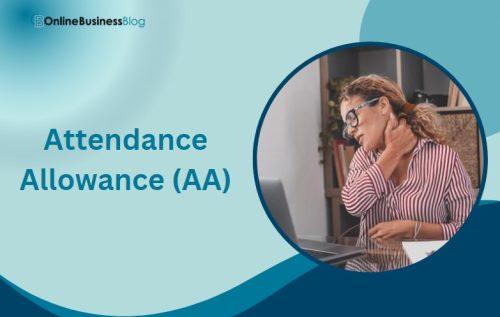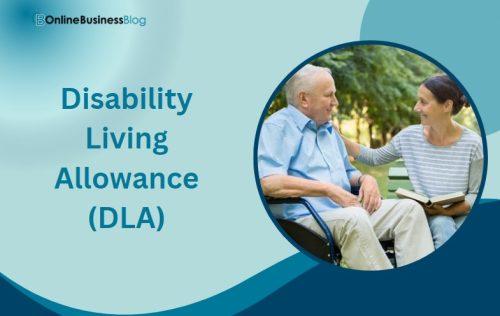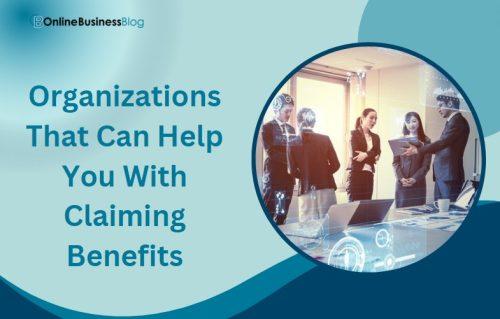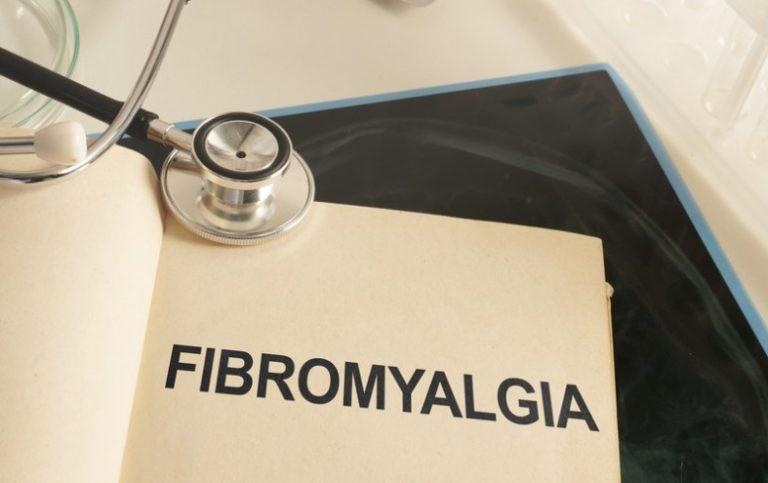Post Contents
Living with fibromyalgia can be challenging, but it’s important to remember that you are not alone. In the UK, there are several benefits available to help support individuals with fibromyalgia and their daily living needs. Whether you’re struggling with dressing yourself, preparing meals, or simply getting around, these benefits can provide much-needed assistance and relief. In this blog post, we’ll explore the various benefits that you may be eligible for if you have fibromyalgia in the UK. From Attendance Allowance to Personal Independence Payment and more, let’s dive into the details of how these benefits can make a positive impact on your life!
What Benefits Can I Claim if I Have Fibromyalgia in the UK?
Attendance Allowance (AA)

If you’re aged 65 or over and find yourself needing assistance with daily living tasks due to fibromyalgia, Attendance Allowance (AA) can be a valuable benefit to consider. AA is specifically designed for individuals in this age group who require help with activities like dressing, washing, or cooking.
Living with fibromyalgia can make even the simplest tasks feel overwhelming at times. The constant pain and fatigue can greatly impact your ability to carry out essential daily activities independently. This is where Attendance Allowance comes into play – it provides financial support to help cover the costs of any extra care or support you may need.
To qualify for AA, you must meet certain criteria related to your difficulties in performing these everyday tasks. It’s important to note that AA isn’t means-tested, so whether you have savings or income won’t affect your eligibility.
The application process for Attendance Allowance involves filling out a form detailing how your fibromyalgia affects your ability to perform various activities. Be sure to provide as much detail as possible about the challenges you face on a daily basis.
Receiving AA can make a significant difference in enhancing your independence and quality of life while managing fibromyalgia symptoms. So if you’re eligible for this benefit, don’t hesitate to explore how it could provide the support needed for smoother day-to-day functioning.
Personal Independence Payment (PIP)
Personal Independence Payment (PIP) is a valuable benefit that can provide much-needed support for individuals living with fibromyalgia in the UK. This benefit is available to people of all ages who face challenges in their daily activities due to long-term health conditions or disabilities.
If you have fibromyalgia and struggle with tasks such as walking, dressing, or preparing food, you may be eligible for PIP. The aim of this benefit is to help individuals maintain their independence and improve their quality of life.
PIP takes into account how your condition affects your ability to carry out specific activities on a daily basis. It assesses both physical and mental limitations caused by fibromyalgia, ensuring that those who genuinely need assistance receive the support they require.
Applying for PIP involves completing a detailed assessment form and attending a face-to-face consultation with a healthcare professional. It’s important to provide accurate information about the impact of your condition on your day-to-day life during these stages.
Remember, PIP isn’t means-tested, so it doesn’t depend on your income or savings. If you meet the eligibility criteria outlined by the Department for Work and Pensions (DWP), you may be entitled to financial support through PIP.
Navigating the benefits system can sometimes feel overwhelming, but there are organizations like Turn2us, Citizens Advice, and Fibromyalgia Action UK that offer guidance on claiming benefits related to fibromyalgia. These resources can assist you throughout the application process and ensure that you receive all the support available to you.
By exploring options like Personal Independence Payment (PIP), individuals living with fibromyalgia can access vital financial aid tailored specifically towards their needs. Remember to seek expert advice from relevant organizations when applying for these benefits!
Disability Living Allowance (DLA)

Disability Living Allowance (DLA) is a benefit that can provide financial support for individuals with fibromyalgia in the UK. This allowance aims to help cover the extra costs associated with living with a disability or long-term health condition.
DLA is not means-tested, which means it does not depend on your income or savings. Instead, it focuses on assessing how your condition affects your ability to carry out daily activities and mobility.
The DLA application process involves completing a detailed form where you will need to provide information about how fibromyalgia impacts your life. This includes details about any difficulties you may have with personal care, getting around, and managing day-to-day tasks.
It’s important to note that DLA is gradually being replaced by Personal Independence Payment (PIP). However, if you were already receiving DLA before the transition took place, you should continue receiving payments under DLA rules until you are invited for reassessment.
Claiming DLA can be complex and overwhelming at times. Therefore, seeking advice from organizations such as Fibromyalgia Action UK or Citizens Advice can be beneficial in understanding the eligibility criteria and navigating through the application process successfully.
Remember that each case is unique, so professional guidance tailored to your specific circumstances can greatly enhance your chances of accessing the support you deserve through Disability Living Allowance.
Employment and Support Allowance (ESA)
Employment and Support Allowance (ESA) can be a crucial lifeline for individuals living with fibromyalgia in the UK. This benefit is specifically designed to provide financial support to those who are unable to work due to their disability or health condition.
Living with fibromyalgia can bring about various challenges that make it difficult to maintain regular employment. The unpredictable nature of symptoms such as chronic pain, fatigue, and cognitive difficulties can greatly impact an individual’s ability to work for at least 35 hours a week.
The ESA benefit recognizes the unique needs of people with fibromyalgia and aims to provide them with some financial stability. By receiving ESA, individuals can focus on managing their symptoms and taking care of their overall well-being without the added stress of meeting work requirements.
Applying for ESA may involve providing medical evidence from healthcare professionals familiar with your condition. It is essential to gather all necessary documentation that supports your case and highlights how fibromyalgia affects your ability to work effectively.
Remember, each case is evaluated individually, so it’s important not to compare yourself or your abilities with others when applying for benefits like ESA. Focus on presenting a clear picture of how fibromyalgia impacts your daily life and functioning.
Navigating the application process may seem daunting, but there are organizations like Turn2us, Citizens Advice, and Fibromyalgia Action UK that offer valuable assistance in understanding eligibility criteria, completing forms correctly, gathering supporting evidence, and appealing decisions if necessary.
If you find yourself unable to work due to fibromyalgia-related limitations, exploring options like ESA could help alleviate some financial burdens while allowing you space for self-care and symptom management. Remember that seeking professional guidance throughout this process can increase your chances of receiving the support you deserve.
Organizations That Can Help You With Claiming Benefits if You Have Fibromyalgia

If you have fibromyalgia and are looking for support in claiming benefits, there are several organizations in the UK that can provide valuable assistance. One such organization is Turn2us, a charity that offers free financial help and advice to individuals across the country. They have a helpful benefits calculator that can assess your eligibility for various benefits specifically tailored to your unique situation.
Another organization that can offer guidance on benefit claims is Citizens Advice. As a government-funded entity, they provide free advice on a wide range of topics, including benefits. Whether you prefer to reach out online or through phone contact, Citizens Advice has local bureaus ready to assist you.
Additionally, Fibromyalgia Action UK is an invaluable resource for individuals living with fibromyalgia. This charitable organization not only provides information about the condition but also offers support services like their helpline dedicated to providing advice on benefits specific to those dealing with fibromyalgia.
These organizations understand the challenges faced by people with fibromyalgia and aim to make the process of claiming benefits more manageable and less daunting. By seeking assistance from these reputable sources, you can gain access to vital information and support networks designed specifically for individuals coping with this chronic pain condition.
Conclusion
If you have fibromyalgia in the UK, there are several benefits that you may be eligible to claim. These benefits can provide much-needed financial support and assistance with daily living activities. It’s important to explore all available options and seek advice from organizations such as Turn2us, Citizens Advice, and Fibromyalgia Action UK.
Remember that each benefit has its own eligibility criteria, so it’s crucial to understand the requirements and gather any necessary documentation before applying. The process of claiming benefits can sometimes be complex but don’t hesitate to reach out for help if you need it. These organizations are here to assist you in navigating through the system and ensuring that you receive the support you deserve.
Living with fibromyalgia can present numerous challenges, but accessing these benefits can help alleviate some of the financial burdens while providing valuable resources for managing your condition. Take advantage of these opportunities and empower yourself with knowledge about what is available to you.
Remember that seeking professional medical advice is essential when dealing with fibromyalgia or any other health condition. Your healthcare provider can offer guidance on managing symptoms and improving overall well-being.
By understanding your rights and exploring available benefits, you can take steps towards a better quality of life despite living with fibromyalgia in the UK.
FAQ on What Benefits Can I Claim if I Have Fibromyalgia in the UK?
1. Does fibromyalgia qualify for disability UK?
Yes, fibromyalgia can qualify for disability benefits in the UK. The Department for Work and Pensions (DWP) recognizes fibromyalgia as a long-term health condition that can affect a person’s ability to work and live independently.
To qualify for disability benefits, you must meet certain criteria, including having a diagnosis of fibromyalgia, having symptoms that have lasted for at least 12 months, and having difficulty with everyday activities as a result of your fibromyalgia.
2. Is fibromyalgia Recognised in UK?
Yes, fibromyalgia is recognized as a disability in the UK. The DWP has a specific set of criteria that must be met in order to qualify for disability benefits for fibromyalgia.
These criteria include:
- A diagnosis of fibromyalgia from a doctor
- Symptoms that have lasted for at least 12 months
- Difficulty with everyday activities as a result of your fibromyalgia
If you meet these criteria, you may be eligible for disability benefits.
3. How do I win a fibromyalgia disability case UK?
To win a fibromyalgia disability case in the UK, you must provide evidence to the DWP that you meet the criteria for disability benefits.
This evidence should include:
- Your medical records, including your diagnosis of fibromyalgia
- A letter from your doctor describing your symptoms and how they affect your ability to work and live independently
- Any other evidence that supports your claim, such as a report from a physiotherapist or occupational therapist
If the DWP decides that you do not meet the criteria for disability benefits, you can appeal their decision. You can appeal their decision by filling out a form and sending it to the DWP. You can also get help with your appeal from a benefits adviser.


